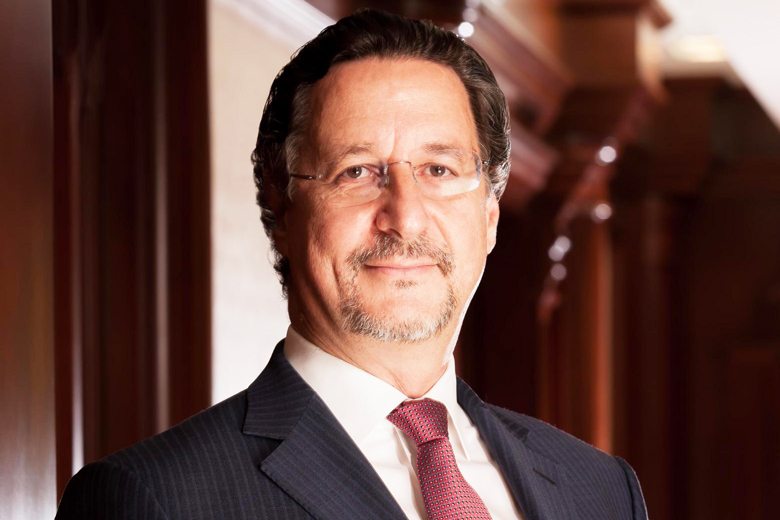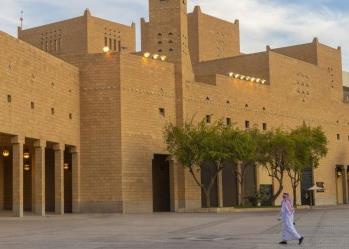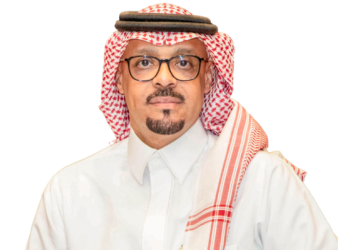

Interview: Ziad Makkawi, CEO of Qatar First Bank
Qatar First Bank (QFB) has swum against the tide of GCC economies since it was founded in 2009 in the wake of the global financial crisis and at the bottom of an oil price cycle.
It listed on the Qatar Stock Exchange (QSE) on 27 April this year, at another low point for oil prices. While this depressed the valuation of the shariah-compliant investment bank, the listing was generally successful.

Ziad Makkawi, Qatar First Bank
Ziad Makkawi, Qatar First Bank
We are pleased with the outcome, says Ziad Makkawi, CEO of the bank since mid-2015. It was the first listing of a private company in six years and we didnt know how the market would react, but it reacted very positively.
The shares were listed at QR15 ($4) each, giving QFB a market capitalisation of almost QR2.5bn. The shares traded at around QR14 in the following days, while trading volumes on 27 April surpassed 14 million shares, despite the generally low liquidity on the QSE.
The listing was primarily to allow the 1,600 founding shareholders a mechanism for trading. Some will have increased their stakes as others exited, and new shareholders are expected to invest as well.
At inception there was a promise to the shareholders that there would be a listing, but for various reasons which predate me, this didnt happen, says Makkawi. This comes on the heels of a renewed willingness by the authorities to reactivate the stock market and give more visibility to the private sector.
Riding out slowing growth
The recent poor performance of the Qatari indices, one reason for the lack of listings, is not just related to oil prices. Global equity markets have been volatile in 2016 as the global macroeconomic mood darkens. This is exacerbated by regional geopolitical tensions in the GCC, as well as poorly diversified economies.
But QFB believes it is well positioned to manage the difficult period.
Qatar, of all the countries in the GCC, is the most resilient, says Makkawi. Its size, the size of its reserves, its GDP per capita mean it is well-equipped to withstand even prolonged shocks to the system. It has an inherent growth story as Qatar is still in the process of building infrastructure.
Preparations for the Fifa World Cup in 2022 are expected to drive spending and growth for several years.
QFB is also looking with interest at Saudi Arabias Vision 2030, and has plans to expand in the kingdom.
But it is the private equity arm of the bank that can take advantage of lower oil prices to make key investments, focused in defensive sectors such as healthcare.
Private equity
QFB has primarily invested in the GCC and Turkey, in sectors as diverse as retail, food & beverage, construction, real estate, logistics and manufacturing. But the current focus, as for many private equity firms, is on health.
Through its investments in the UAEs Cambridge Medical and Healthcare MENA, QFB has built up management skills in the sector, and is ready for more acquisitions.
We see the sector as defensive, explains Makkawi. The healthcare sector in the GCC and the Middle East more broadly is behind in terms of spend per capita, but we see the trends evolving in that direction.
The low oil price environment is a good backdrop for making private equity investments. QFB has two transactions it hopes to close in 2016.
Its easier to find good investments now than when the markets are on fire and everything is going up and the expectations from sellers, in terms of the entry point for private equity, are more difficult, says Makkawi. Then you have to pay up and you have a lot of competition.
But Makkawi expects some recovery in oil prices.
Its cyclical, I have seen oil prices yoyo in the last 30 years, he says. The price has recovered a little and it will stabilise over the next 12 months, putting a new base from which these economies can grow.
QFB is changing its private equity strategy, and beginning to bring in other investors with their own management teams.
When we have a deal, instead of taking the whole deal, we invest up to 25 per cent and bring in co-investors, says Makkawi. We are moving away from our revenue stream being totally linked to the performance of specific assets.
Often, the co-investors are clients of QFBs high net worth individual (HNWI), corporate and institutional banking services. Both the bank and its clients are diversifying investments by sector and region to reduce risks in a difficult environment.
Shariah-compliant banking continues growth
While Islamic finance used to be a niche, QFB is one of the institutions closing the gap on conventional finance.
There is very little you cannot do from a shariah point of view if it structured properly, according to the principles, says Makkawi. We see it not as an impediment but as an advantage. The demand for shariah products is increasing substantially in the region and it remains the fastest growing segment in financial services.
Islamic investors no longer have to accept lower returns and quality as multinational institutions and governments tap this pool of alternative liquidity.
Makawwi also believes that ethical banking will grow in response to popular distrust of financialisation, overleveraging and derivatives.
A key driver of progress will be around unifying and homogenising shariah boards and their rulings. Progress on standardisation has been slow so far.
Homogenisation would be the biggest positive development, says Makkawi. There is now a shariah boards forum in the UAE, where the boards of various banks sit down and discuss the issues.
You might also like...

Iraq signs deal to develop the Akkas gas field
25 April 2024

Emaar appoints beachfront project contractor
25 April 2024

Acwa Power signs $356m Barka extension
25 April 2024

AD Ports secures Angola port concession agreement
25 April 2024
A MEED Subscription...
Subscribe or upgrade your current MEED.com package to support your strategic planning with the MENA region’s best source of business information. Proceed to our online shop below to find out more about the features in each package.








